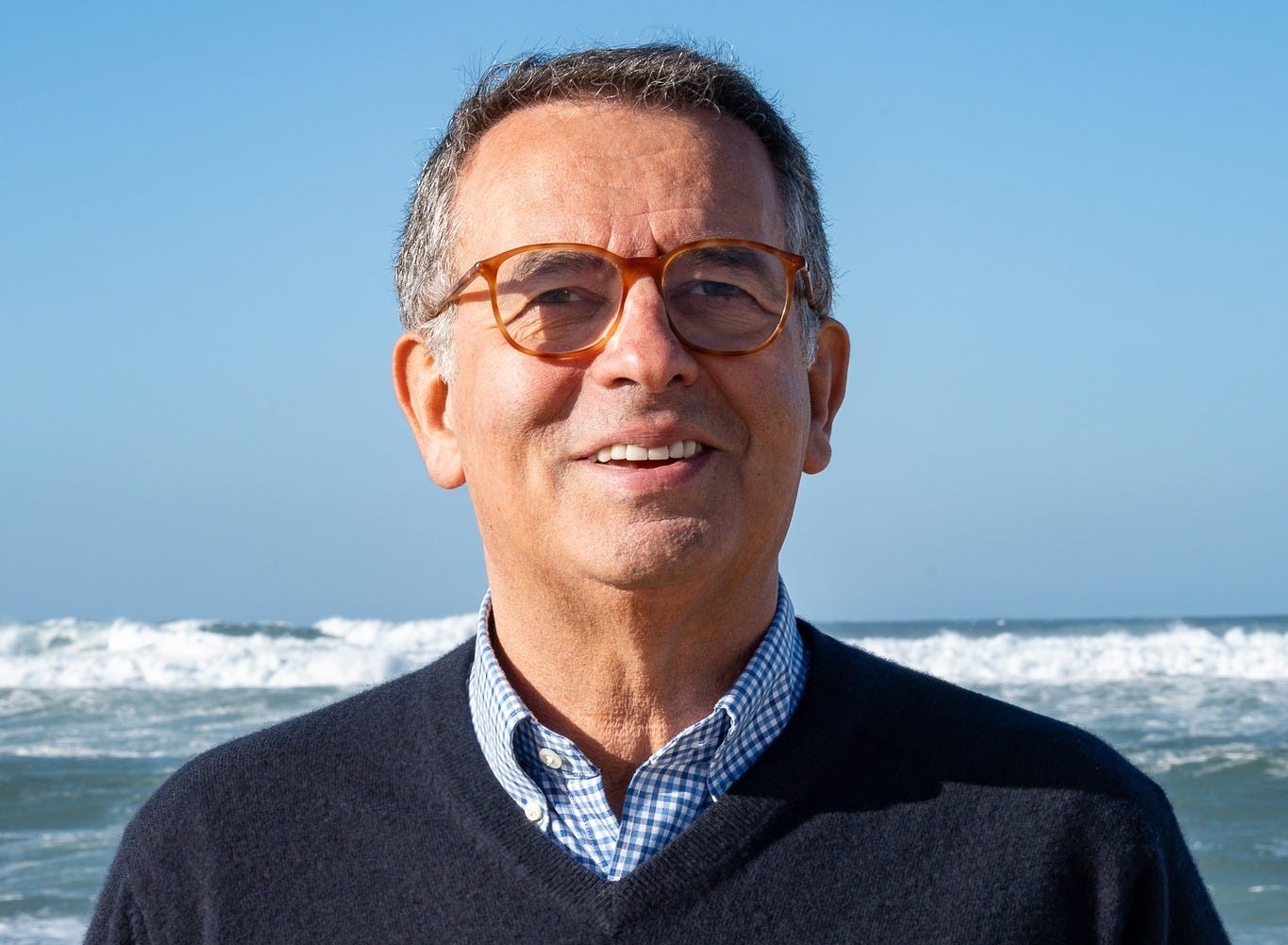Former Socialist leader launches Presidential bid
Seguro’s bitter rivalry with António Costa peaked in 2014 when Costa ousted him as PS leader. Since then, the two remained estranged, with Seguro withdrawing from politics until now.

António José Seguro, former Secretary-General of Portugal’s Socialist Party (PS), formally announced his candidacy for President this Wednesday at the Cultural and Congress Center in Caldas da Rainha.
A video of his speech can be watched here.
He is the first contender to step forward from the left (although some would say the center).
With a message centered on unity, integrity, and democratic renewal, Seguro took several jabs at Presidential frontrunner, former Navy chief, Henrique Gouveia e Melo: “I don’t need to learn on the job. I arrive prepared.”
The event opened with a symbolic theatrical moment: an actor playing Rafael Bordalo Pinheiro declared his shared love for Portugal and the city of Caldas da Rainha.
Soon after, audience members, including Seguro’s daughter, recited verses from Miguel Torga in a staged expression of civic spirit.
Seguro then took the stage, invoking values he said had guided his life and now define his candidacy: “freedom, equality, solidarity, respect, and seriousness.”
His ambition, he declared, is to make Portugal “a just and excellent country.”
A Vision Rooted in Values
In a wide-ranging address, Seguro laid out his vision for the country: social justice paired with economic progress, political ethics alongside effective governance, and inclusive national unity over partisan divides.
“All democrats are welcome,” he said. “There are no good or bad Portuguese, no first- or second-class citizens. We are one people.”
Seguro emphasized the need for a president who builds trust and consensus, implicitly criticizing current President Marcelo Rebelo de Sousa and fellow candidate Henrique Gouveia e Melo: “The President must be a moral reference, not media noise. A respected referee, not a player.”
A Call for National Renewal
Seguro proposed a “pact for prosperity” as his core agenda, one that would involve all political parties, social partners, universities, and civil society.
The goal: to craft a national project transcending short-term governance and providing long-term direction.
“Portugal needs a course, not just a government,” he insisted.
Rejecting constitutional revision as a priority, Seguro pointed instead to urgent economic and social issues, housing, health care, youth emigration, and wages, as the real focus of presidential leadership.
He defended public services such as the SNS (National Health Service) and public schools, advocated for organized and humane immigration policy, and called for faster and more efficient justice.
International Outlook and Caution on Defense
Turning to foreign affairs, Seguro positioned himself as a committed Europeanist.
He warned against resurgent nationalism and urged the EU to develop a “common response to common problems” and move toward greater strategic autonomy without breaking transatlantic ties.
On defense spending, he cautioned against rash increases: “Before spending more, we must spend better.”
Citing the already large gap between European and Russian military budgets, he called for smarter defense through technological development and scientific cooperation.
A Presidential Role Defined by Balance
Seguro underlined the constitutional responsibilities of the presidency, emphasizing the need for independence, discretion, and a non-interventionist role in military affairs.
“A President must act with restraint and a sense of state,” he said, framing the Armed Forces as servants of peace and democracy.
“I stepped aside when I could have divided. I return now to unite,” he declared, closing his speech to a standing ovation.
With nods to personal humility and political experience, Seguro described his return not as a bid for power but a gesture of service: “I’m not here to ask for anything. I’m here to give back.”
Rivalry with António Costa
Born in Penamacor in 1962, Seguro holds a master’s in political science and a degree in international relations.
He held various governmental and parliamentary posts before leading the PS between 2011 and 2014.
Despite the PS achieving one of its best local election results in 2013 and narrowly winning the 2014 European elections under Francisco Assis, António Costa, now President of the European Council, considered the outcome insufficient.
He abruptly launched a leadership challenge, prompting the party to hold open primaries in which he defeated Seguro in a landslide.
It was an intense and bitter internal battle, marked by accusations from Seguro of “disloyalty,” “betrayal of the PS’s legacy,” “opportunism,” and “lack of solidarity.”
Seguro resigned immediately, and Costa became party leader, eventually taking office as Prime Minister in 2015.
Since then, the two have remained distant, they were never close to begin with , and Seguro stepped away from public life until now, focusing on academia and business.
He declared himself “a free man” with no party constraints, signaling that his candidacy would be driven by personal conviction rather than party strategy.
To date, Seguro is the only declared presidential candidate from the center-left.
Other candidates already in the race include former PSD leader Luís Marques Mendes, Admiral Henrique Gouveia e Melo, and Joana Amaral Dias.



